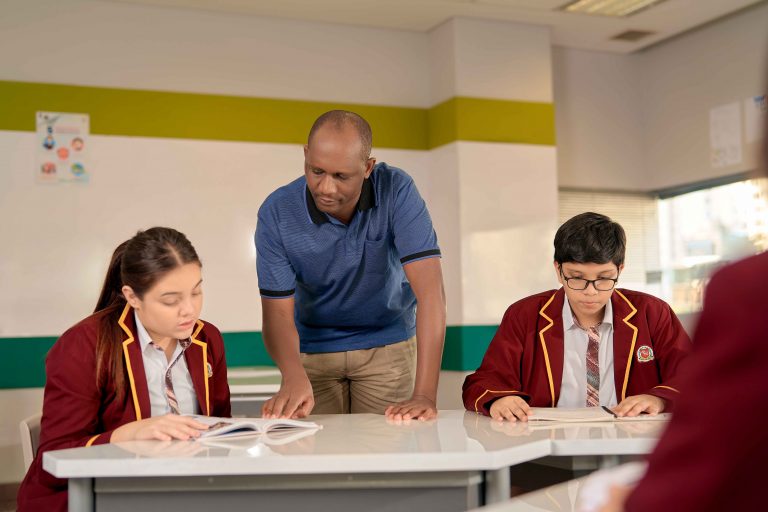IB Mathematics in the MYP: Building a Strong Foundation for Analytical Thinking

The IB Middle Years Programme (MYP) takes a fresh approach to maths. In addition to crunching numbers and equations, students will learn how to apply the fundamentals of maths to their lives.
The goal is to make the tricky subject more engaging, enjoyable, and relevant. Either through geometry or statistics, students are given the tools to think critically and solve problems that matter.
Let’s explore how Mathematics in MYP builds a strong foundation for students, which will be helpful for their future academic studies and daily lives!
The MYP Mathematics Framework
The Mathematics in MYP Framework is built to engage students in many mathematical concepts. It’s split into four key branches: numerical reasoning, modelling, spatial awareness, and data reasoning.
This structure gives students a rounded understanding of mathematics, as it is designed to develop analytical and practical skills.
For example, students learn to analyse numbers, understand space and shapes, and use data to solve problems. This is a fun way to explore how maths functions in various areas, from science to design.
Thus, this versatile approach helps students deeply understand the subject and see its value beyond the classroom.
Two Levels of Study: Standard and Extended
Standard and Extended are the mathematics levels in MYP. Students can learn the concepts at their own pace.
Standard maths covers all the basics, thoroughly understanding key concepts without overwhelming them with too much complexity and making them comfortable with everyday maths skills.
In contrast, Extended mathematics is for those who want to dig deeper and learn advanced content. It’s great if they want to take more rigorous courses like the IB Diploma’s Higher Level mathematics.
No matter the level, the course will support students in building the solid problem-solving skills they need.
Approaches to Learning (ATL) in MYP Mathematics
In Mathematics in MYP, Approaches to Learning (ATL) skills are at the core of every lesson. Students are expected to do more than just solve equations or memorise formulas. ATL skills covers:
- Research and information literacy
- Creative and critical thinking
- Communication and collaboration
- Self-management and organisation
Students are encouraged to collaborate with their peers, ask questions, and reflect on their learning. They aren’t just passive learners but actively engage with the material, working through problems creatively and independently.
By developing these skills, students become more confident in handling problems and are better prepared for studies across all subjects.
Real-World Application and Problem-Solving
This program understands that simply learning mathematical theories is not enough. Therefore, Mathematics in MYP focuses on applying mathematical concepts to real-world problems, making the subject much more practical.
Students see how maths is relevant in everyday situations, whether calculating the probability of events, analysing statistics in the news, or working out personal budgets.
This helps them see the relevance of mathematics outside the classroom. So, instead of just following steps, students are challenged to think critically, weigh different methods, and find solutions.
Assessment in MYP Mathematics
Assessment in Mathematics in MYP sees the bigger picture of a student’s learning journey. Instead of focusing solely on test scores, the assessment criteria look at four areas:
- Knowing and Understanding
- Investigating Patterns
- Communicating
- Applying Mathematics in Real-Life Contexts.
“Knowing and Understanding” focuses on the fundamental principles, while “Investigating Patterns” encourages students to dig into mathematical discoveries, helping them develop inquiry skills.
The “Communicating” criterion ensures students can clearly explain their process, showing they understand the logic behind their answers.
“Applying Mathematics in Real-Life Contexts” pushes students to use what they’ve learned in practical situations, reinforcing that maths is relevant beyond the classroom.
This assessment method helps students understand how to apply maths in everyday life.
Preparing for Future Studies
Mathematics in MYP considers students’ future studies in mind. It prepares students for advanced maths courses in academic and professional fields.
Students who engage deeply with the course, especially at the Extended level, will find themselves better equipped to handle the challenges of higher education.
They can solve complex equations in calculus or apply statistical models in science and economics. The thinking skills developed through MYP math are incredibly valuable.
Also, the programme’s emphasis on real-world applications means that students understand how mathematics can be used in everyday life, from budgeting to analysing data.
Mathematics in MYP could offer so much learning to students, such as mastering numbers and necessary skills.
It encourages them to think critically, apply their knowledge to real-life situations, and develop problem-solving skills they will use throughout their lives.
The programme prepares them not only for higher-level maths courses but also for future academic and career paths.
If you’d like to explore more about the MYP BINUS SCHOOL Simprug’s approach to fostering personal and academic growth, check out The IB MYP Personal Project Examples as a Pathway to Personal Growth and Academic Excellence.
Sources

